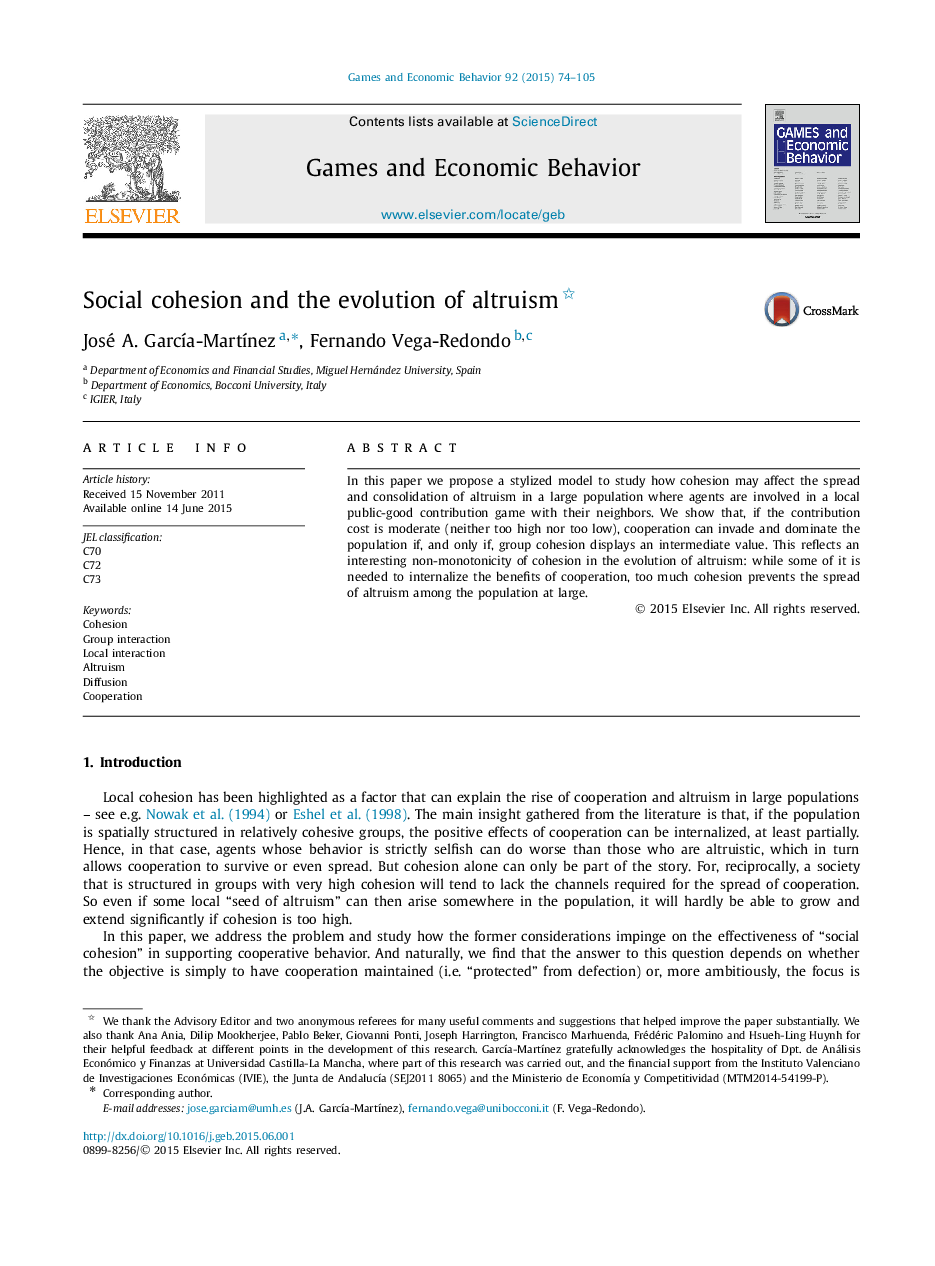| Article ID | Journal | Published Year | Pages | File Type |
|---|---|---|---|---|
| 5071586 | Games and Economic Behavior | 2015 | 32 Pages |
Abstract
In this paper we propose a stylized model to study how cohesion may affect the spread and consolidation of altruism in a large population where agents are involved in a local public-good contribution game with their neighbors. We show that, if the contribution cost is moderate (neither too high nor too low), cooperation can invade and dominate the population if, and only if, group cohesion displays an intermediate value. This reflects an interesting non-monotonicity of cohesion in the evolution of altruism: while some of it is needed to internalize the benefits of cooperation, too much cohesion prevents the spread of altruism among the population at large.
Related Topics
Social Sciences and Humanities
Economics, Econometrics and Finance
Economics and Econometrics
Authors
José A. GarcÃa-MartÃnez, Fernando Vega-Redondo,
